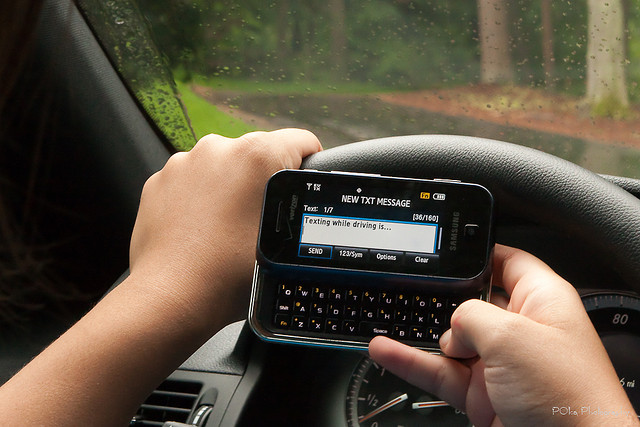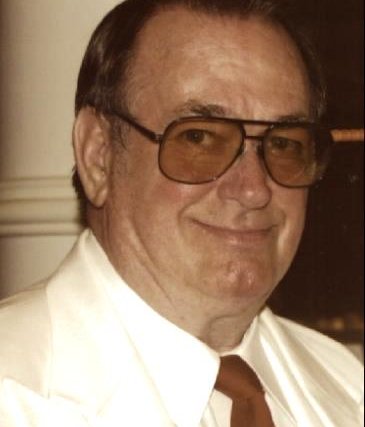 Tom Cochrane’s Life is a Highway has got you head-dancing in the fast-lane. Your hands are at a perfect ten-and-two. Your seat belt is secured. The signs say you’re two miles from the exit which will take you to your next appointment. It’s a good day.
Tom Cochrane’s Life is a Highway has got you head-dancing in the fast-lane. Your hands are at a perfect ten-and-two. Your seat belt is secured. The signs say you’re two miles from the exit which will take you to your next appointment. It’s a good day.
Then your cell phone buzzes in the cup holder. The screen is obscured by the parking break. It buzzes again. Information is coming in and you’re missing it! Granted, it’s probably just a photo of your cat, Honey Booboo, wearing a Christmas sweater. But in case it’s your boss, you reach for the phone… even though it’s illegal to operate a cell phone in your vehicle in most states.
“According to a National Highway Traffic Safety Administration study, distracted driving led to motor vehicle accidents that killed almost 5,500 people and injured close to 450,000 more during 2009. The 2010 study attributed about one-fifth of the accidents directly to cell phone use.” But did you know that, if the call/texts coming into your phone at this moment turn out to be work-related, any subsequent accident could leave you and your firm vulnerable to a Professional Liability claim?
This revelation appeared in a recent edition of Victor O. Schinnerer’s Risk Management newsletter (an excellent resource for all architects, engineers and other design professionals):
While it is clear that distracted driving can lead to traffic accidents and fatalities, the use of a cell phone for calling or texting while driving also could lead to claims that go beyond commercial or personal auto coverage. Arguments could be made that if the communication that caused the distraction, and subsequent accident, was part of a professional service provided by the driver, but for the negligent performance of the service the accident or bodily injury or death would not have occurred…
One real-life claims scenario was provided in the newsletter, too:
Recently, the Coca-Cola Company was held responsible for $21.5 million in compensatory and punitive damages resulting from a motor vehicle collision involving a Coca-Cola employee who was using her cell phone at the time of the accident. Although the driver was using a hands-free cell phone for the business-related call—an activity that was allowed under the company’s cell phone use policy—the jury held her and her employer responsible based on studies that indicated that any cell phone use resulted in distracted driving and on the fact that Coca-Cola was aware of such studies and continued to endorse its policy as sufficient to protect its employees and the driving public.
Similar cases are proceeding against employers of professional service providers who conduct business while operating a motor vehicle. For instance, law firms are facing responsibility for harm caused by attorneys who charge billable time through cell phone use while driving. In most situations, commercial auto or other liability coverages would both respond to such allegations and provide sufficient coverage. Professional liability coverage also could be implicated in an attempt by a creative plaintiff attorney to recover compensatory and punitive damages in an egregious case. In most professional liability insurance policies there is no clear exclusion of coverage for harm caused by a vehicular accident if the accident was the result of negligently performed professional services.
So, the first question is whether your firm has a policy against employees using cell phones while driving. The next question is… When was the last time you evaluated that policy?
Many firms have policies against the use of cell phones while driving unless the communication devices are “hands-free.” Many auto insurance policies have similar prohibitions. The dangers of cell phone use, however, don’t seem to be limited to the manipulation of a handheld device. Studies have indicated that any cell phone use can negatively impact driving performance; one study indicated that a 37% increase in cognitive distraction is attributed to any cell phone use while driving.
This is the kind of sticky, absolutely plausible claims question which you’d probably rather not deal with, but must, for the sake of your firm and your own liability. Good news: When these questions arise, your broker should be there to help you answer them.
There’s your exit. You decide to let the phone keep buzzing. You signal your intention to exit, check your blind spot. Whatever it is can wait until you’re safely parked at the job site.
Shout-Out Credit:
Jeff Gerrick
Professional Underwriters of Az., Inc. — Scottsdale, Arizona
Email: jeff@prounderwriters.com / Phone: 480-483-0440



